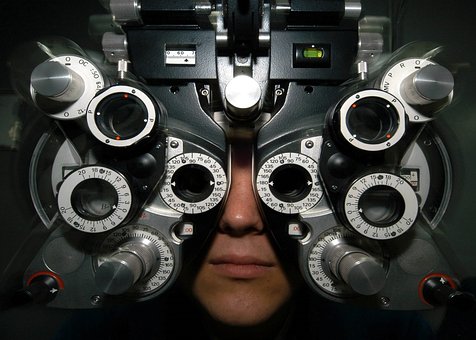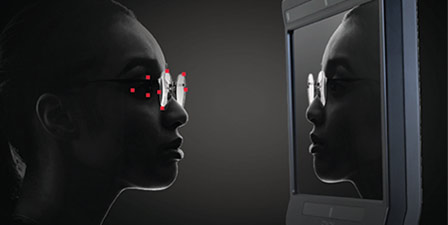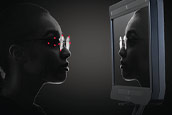A new, exciting and "radical" way of establishing office efficiency is by allowing the doctor(s) to delegate refraction duties to scribes and technicians. This allows the doctors to dedicate more personal "one on one" time with the patient thus increasing the quality of care, provides the patient with a more personalized experience, and also allows the doctor(s) to increase the number of patients seen per day, which nets an increase in office revenue.
 What does it mean to delegate more refraction responsibilities to scribes and technicians? Simply put, a refraction is a standard procedure used by the doctor to determine the eyeglass prescription specific to the patient's needs.
What does it mean to delegate more refraction responsibilities to scribes and technicians? Simply put, a refraction is a standard procedure used by the doctor to determine the eyeglass prescription specific to the patient's needs. For the most part, this procedure is two-fold: The doctor gathers data based on results from the examination and then interprets those results to determine the best course of action for the prescription. It is the first part, data gathering and documenting, which would be delegated to the scribe and technicians and would give time back to the doctor for other patients.
The data gathering and documenting portion of the refraction requires extensive training to interpret and understand the myriad variables that the office equipment and instrumentation provide. Knowledge of the methodology alone would not suffice. An understanding of the nuances of the equipment, methods and patient history accounts for the extensive training and investment needed. Some argue that it takes years of experience to correctly interpret and understand the data, while others argue that direct supervision by the doctor during examination trumps those who take the position of indirect supervision, when the doctor is not present during refraction.
So the question presents itself, why would a doctor entrust this type of indirect responsibility to less experienced staff? From the perspective of the office, this training would be nothing short of an investment in the staff that would yield more patient time and resources for the doctor. Having scribes and technicians extensively trained in the art of refraction would be a great benefit to the office. From the perspective of the doctor, the benefits of training the right type of scribe and technician, over time, would affect the culture of the office by not only providing the doctor with more time with patients, it would also allow the staff to take a greater role in providing quality service. By delegating refraction duties to the scribes and technicians, offices can schedule more full eye exams, including refractions, resulting in a great way to grow the volume of new patients, increase revenue, and provide a higher level of quality services for the patient.












